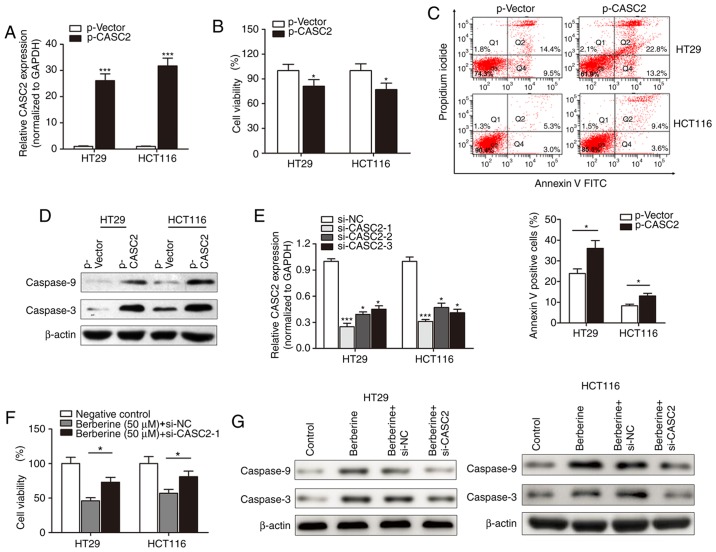Figure 4.
Berberine inhibited cell growth and increased apoptosis by increasing the expression level of CASC2. (A) The expression level of CASC2 was significantly increased in HT29 and HCT116 cells transfected with the p-CASC2 vector. ***P<0.001 vs. p-Vector group. (B) MTT assay was performed to investigate the effects of CASC2 on cell viability. The cell viability was significantly decreased in cells transfected with the p-CASC2 vector. *P<0.05 vs. p-Vector group. (C) Apoptosis was significantly increased in HT29 and HCT116 cells overexpressing CASC2. *P<0.05 vs. p-Vector group. (D) Western blotting revealed that the overexpression of CASC2 increased the expression level of cleaved caspase-3 and −9. (E) Three siRNAs against CASC2 were generated and validated by performing reverse transcription-quantitative PCR. *P<0.05, ***P<0.001 vs. si-NC group. (F) Berberine treatment (50 µM, 48 h) significantly inhibited the viability of HT29 and HCT116 cells; however, this was partly nullified by knockdown of CASC2. *P<0.05, as indicated. (G) Knockdown of CASC2 partially reversed the inhibition of cleaved caspase-3 and −9 in HT29 and HCT116 cells caused by berberine treatment. CASC2, cancer susceptibility 2; siRNA, small interfering RNA; NC, negative control.

